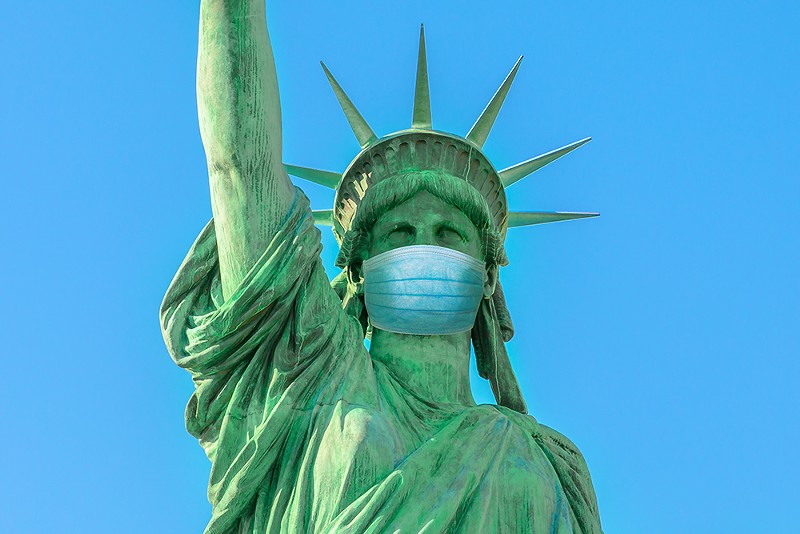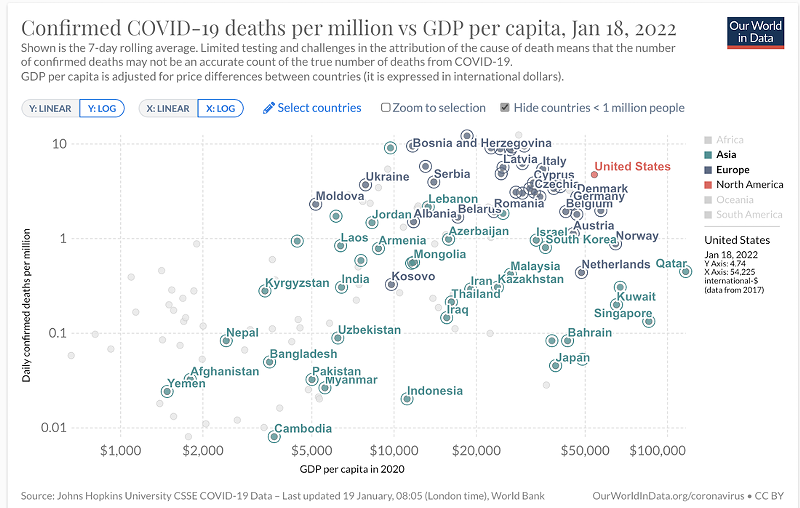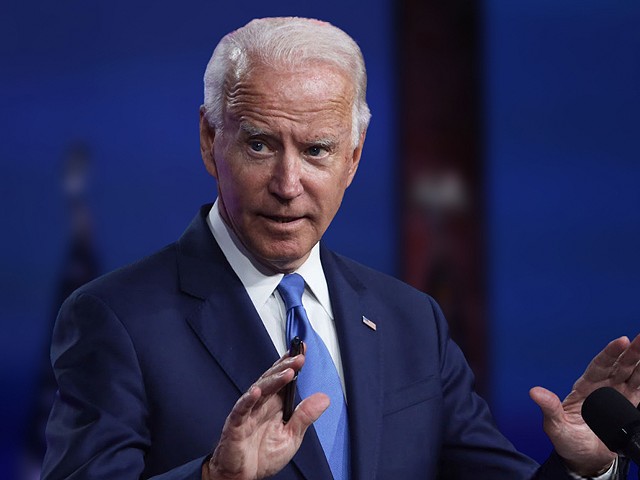
If you were to chart, by country, the number of confirmed COVID deaths per million on one axis and GDP per capita on the other (below), there is no other country with as high a GDP with as many deaths; America has, pound for pound, fared worse throughout this pandemic than any other country on Earth. This is particularly astounding considering the wealth of our country, the fact that most of the world’s public health infrastructure was modeled off of ours, and that we spend nearly a fifth of our entire economy on healthcare.
Why did we fare so poorly?
Because the pandemic exploited a very peculiar aspect of our culture: our individualism. As public health authorities struggled to communicate best practices to the public, they were translating what should always have been a collective message through the lens of individualism. Stay home! Wear your mask! Get your vaccine! These were all framed as things that you or I could (and should) do to protect ourselves (and perhaps also our families). Yet lost in this messaging is the fact that we are all, like it or not, “in this together.” While there are, of course, things that you or I can (and should) do to protect ourselves, our choices affect one another in ways that compound on each other. Our individual welfare is tied indelibly to our collective welfare.
Since pandemic interventions were framed as an individual choice, individuals made individualistic choices. Into the third year and fifth wave of COVID-19 we all continue to suffer for it. Only 63% of Americans have had even two doses of a vaccine. A paltry 38% have had a booster.
Framing a definitionally collective endeavor — protecting the public’s health — as an individual responsibility has failed us. Omicron puts an exclamation point on our folly. For any given individual, particularly those who are boosted, the risk posed by omicron is decidedly less severe. Breakthrough cases coupled with careless public statements from officials like Acting FDA Commissioner Janet Woodcock that “most people are going to get it” has led to a sense of inevitability of infection. All of that has left some weighing the costs of protecting themselves from COVID against just “getting it over with.”
And yet because of its transmissibility, omicron has spread so rapidly that it is overwhelming the systems society relies upon to function — from schools to flights to mass transit systems, all are feeling omicron’s wrath. But no single sector is weathering it as badly as the healthcare system. With omicron, a quarter of U.S. hospitals are facing staffing shortages. The National Guard has been deployed in six states, and hospitals around the country have reverted to “crisis standards of care,” allowing them to ration healthcare to those whom they think can benefit most.
The omicron paradox is that the variant that’s been “less severe” for you or me has delivered some of the most severe consequences for us. But that’s the thing, it has always been about us. Indeed, hundreds of thousands of Americans have lost their lives because we failed to learn to act collectively in the face of this virus.
Thankfully, there’s still time to learn it. It’s not just omicron, COVID, or any of the last two years. COVID isn’t the last challenge that will test our collective will. Beyond the pandemic, millions of Americans go without healthcare because we are the only high-income country in the world that fails to guarantee it to everyone. Our public schools were in calamitous shape even before the pandemic knocked them to the ground. Oh, and then there’s the climate crisis, which threatens to destroy our very planet.
Originally published Jan. 20 by The Incision. Get more at abdulelsayed.substack.com.
Stay connected with Detroit Metro Times. Subscribe to our newsletters, and follow us on Google News, Apple News, Twitter, Facebook, Instagram, or Reddit.







